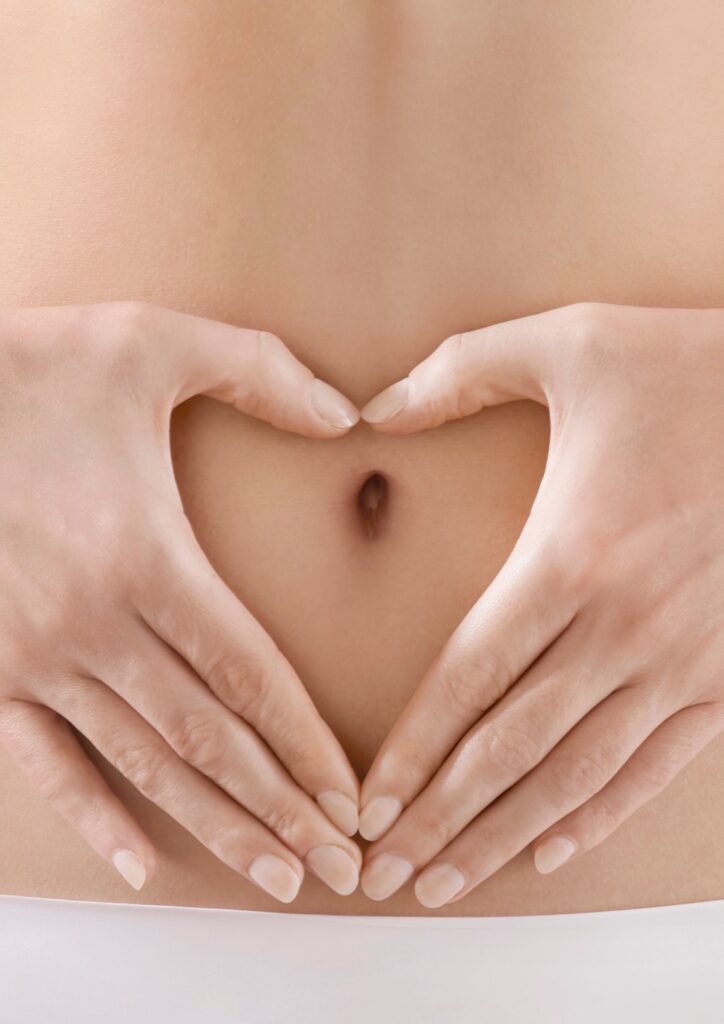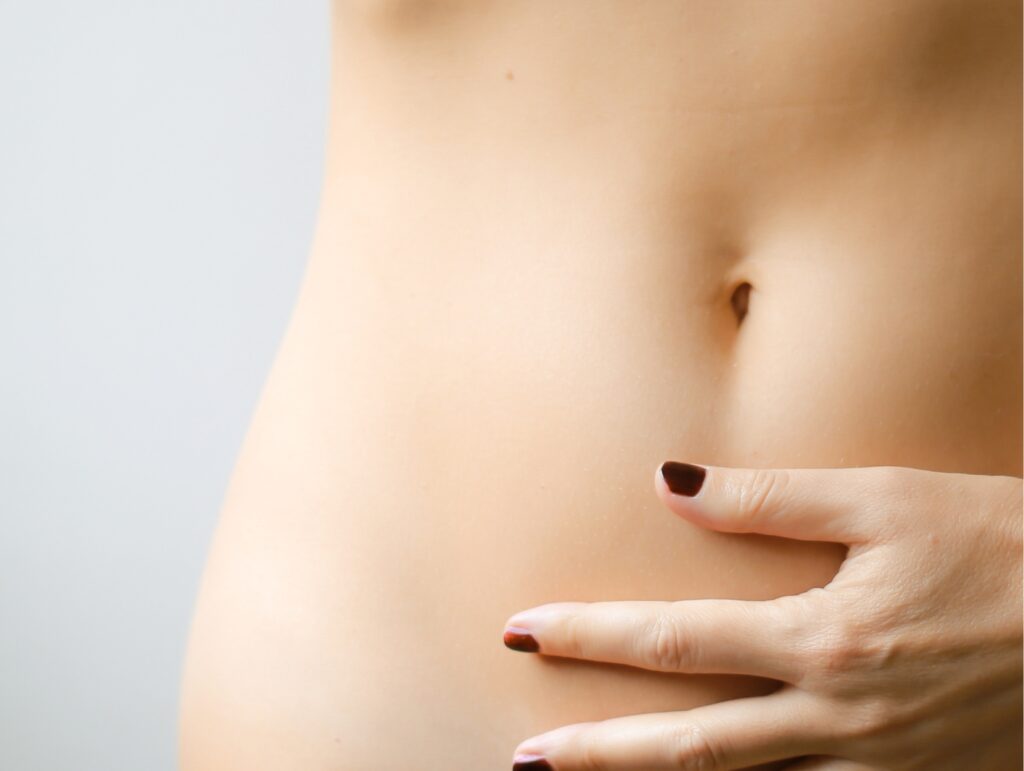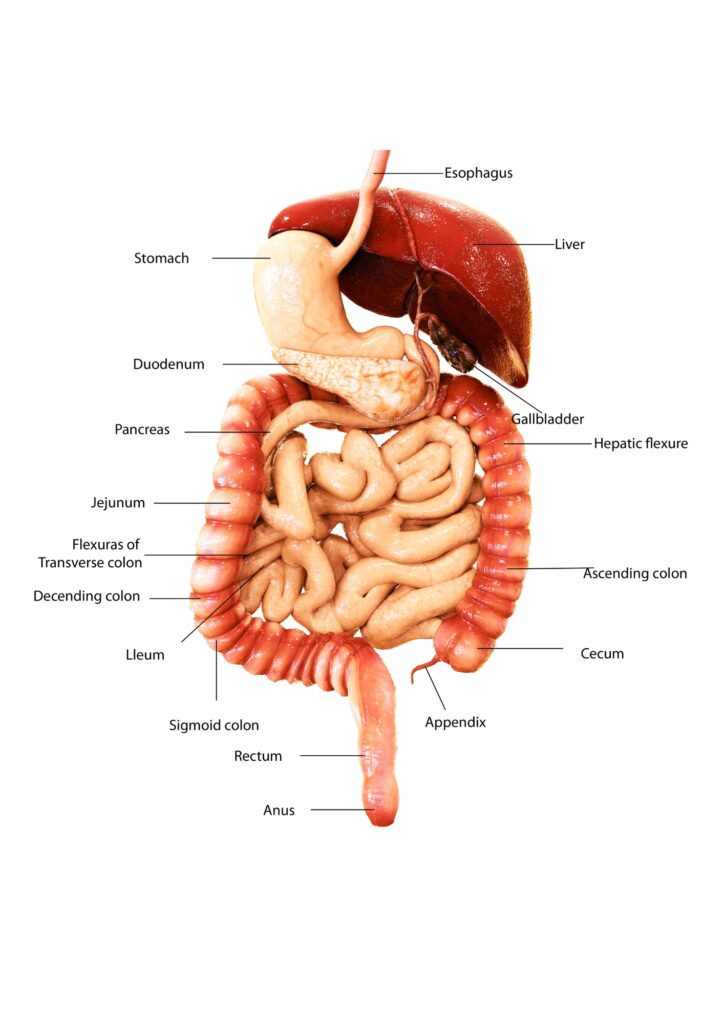Unlocking the secrets of the digestive system.
Our diet and lifestyle have an impact on our health and well-being tremendously. The digestive system plays a crucial function in this – breaking down the food you eat and what you drink, turning them into nutrients and energy for the body’s healthy functioning, and sending them through the gastrointestinal tract for elimination.
Studies show that certain dietary patterns are linked to a healthy gut, while others have been linked with an unhealthy gut. This is because your diet can influence how your body extracts and metabolises certain nutrients.
Also, specific dietary patterns are related to how your gut reacts to certain foods.
Our gut always gives us clues and hints as to how healthy or unhealthy we are; sadly, when you look up different stomach conditions on Google or even visit your doctor, 9 out of 10 times, they will recommend a specific medication that either makes it worse or aggravates other conditions. None of these searches focuses on the more profound reason or informs you on the right thing to take, or at least inform the correct information about the digestive system.

Your digestive system begins at your mouth; as we chew, our teeth grind food into smaller pieces, increasing the surface area for enzymes to act upon. Saliva, a fluid rich in enzymes, moistens the food and initiates the chemical breakdown of carbohydrates through the enzyme amylase. A Transport Tunnel Once chewed and mixed with saliva, the now semi-liquid mass of food called bolus travels down the oesophagus, a muscular tube connecting the mouth to the stomach.
A Gastric Blender
Upon reaching the stomach, the bolus encounters an acidic environment filled with gastric juices. The stomach’s lining secretes hydrochloric acid and pepsin, an enzyme breaking down proteins. This combination of acid and enzymes churns the bolus, converting it into a thick, semi-fluid substance called chyme.
The Small Intestine, Absorption Central
The small intestine, a long and winding tube, is vital to nutrient absorption. The liver and pancreas contribute to the digestive process by releasing bile and pancreatic enzymes into the small intestine. Bile emulsifies fats, while pancreatic enzymes further break down proteins, fats, and carbohydrates.
The inner surface of the small intestine is lined with millions of tiny finger-like structures called villi and microvilli. These structures vastly increase the surface area, facilitating the absorption of nutrients into the bloodstream. Amino acids, fatty acids, vitamins, and minerals are transported to various body parts to support growth, repair, and overall well-being.
The Large Intestine, Home of Beneficial Bacteria
As the digested material continues its journey, it enters the large intestine, also known as the colon. Here, the remaining water, electrolytes, and some nutrients are absorbed, leaving behind semi-solid waste products. The colon is home to trillions of beneficial bacteria that aid in fermenting indigestible carbohydrates, producing gases and short-chain fatty acids that contribute to the gut’s health.
The colon’s main function is to store faeces until they are ready to be eliminated through the rectum and anus during a bowel movement.
If you want to treat something, whether it’s constipation, bloating or abdominal pain, you need to understand how it affects you and know how to counter it. So this is a breakdown of understanding the digestive system and how specific things could make it worse or better depending on the conditions.


The Stomach
Your stomach has high acidity, with a PH of 1 to 3. The acid produced by your stomach is called hydrochloric acid, which is so intense that if something is wrong with the valve on top of the stomach, the acid erupts and starts digesting certain tissues in the oesophagus.
Now that we’ve painted a picture, you should know how strong the acid is. But this is good because stomach acid triggers certain enzymes to digest proteins. This acid also helps absorb certain minerals like iron or B12, which are causes of anaemia, and zinc, a slightly brittle metal at room temperature.
This is one reason why PH balance is essential for women. We also need stomach acid to kill microbes and fungus to prevent too much bacteria from growing in your small intestines. So your stomach being acidic is one of the most essential things in your digestive system.
But what happens when you are deficient in hydrochloric acid in the stomach? Well, let’s start with acid reflux. So here’s a link: the valve on top of your stomach should close if there’s enough of a certain chemical called gastrin which is responsible for releasing hydrochloric acid; this is the parasympathetic control in the brain’s nervous system. Without the hydrochloric acid, this eliminates the connection from the nervous system to the stomach; this explains why having high amounts of stress could trigger heartburn or acid reflux.
When you have a deficiency of acid in your stomach, no mechanism will close the valve on top of your stomach, so the acid regurgitates, which people do when they bring up swallowed food again to the mouth. The term used for low acid in your stomach is called hypochlorhydria. Hypochlorhydria is the root cause of heartburn and acid reflux; then there is achlorhydria which refers to the stomach having no acid. The older you get, the more you lose acid in your stomach, which is the root cause of many digestive problems. Every time you eat, it only gets worse. Because without hydrochloric acid, your pancreas cannot release certain enzymes to digest protein, carbs, and collagen depending on your eating. And without the hydrochloric acid, your gall bladder cannot release bile to break down your fatty soluble vitamins, such as vitamin A, vitamin K, vitamin D and so on. And again, without hydrochloric acid, the fungus and bacteria you get from your food will grow in your small intestines causing SIBO (small intestinal bacteria overgrowth), and this causes bloating. You feel distended, and it will only worsen if you consume probiotics and fibre.
The Role of Beneficial Bacteria
The gut hosts a complex community of microorganisms collectively known as the gut microbiota. These bacteria, viruses, fungi, and other microbes play an essential role in the digestive process and significantly impact our overall health. They help break down certain nutrients, synthesise vitamins, support the immune system, and protect against harmful pathogens.
Maintaining a healthy balance of gut microbiota is vital, and diet plays a significant role in shaping this community. A diet rich in fibre and fermented foods can promote the growth of beneficial bacteria, positively influencing digestion and overall well-being.
The digestive system is a finely tuned network of organs and processes working harmoniously to nourish our bodies. Understanding its intricacies helps us make informed choices about our diets and lifestyles, ultimately impacting our overall health.
By appreciating the importance of each digestive organ and acknowledging the role of beneficial gut bacteria, we can take steps to maintain a healthy digestive system. So, let us treasure this incredible food processor within us and treat it with care by eating balanced, nutritious meals, staying hydrated, and embracing a healthy lifestyle. After all, a well-nourished body leads to a happy and vibrant life.
To download this article please sign up for our Newsletter where we share all upcoming events, happenings & our latest Articles for you to download and keep for free.
SIGN UP BELOW
|



